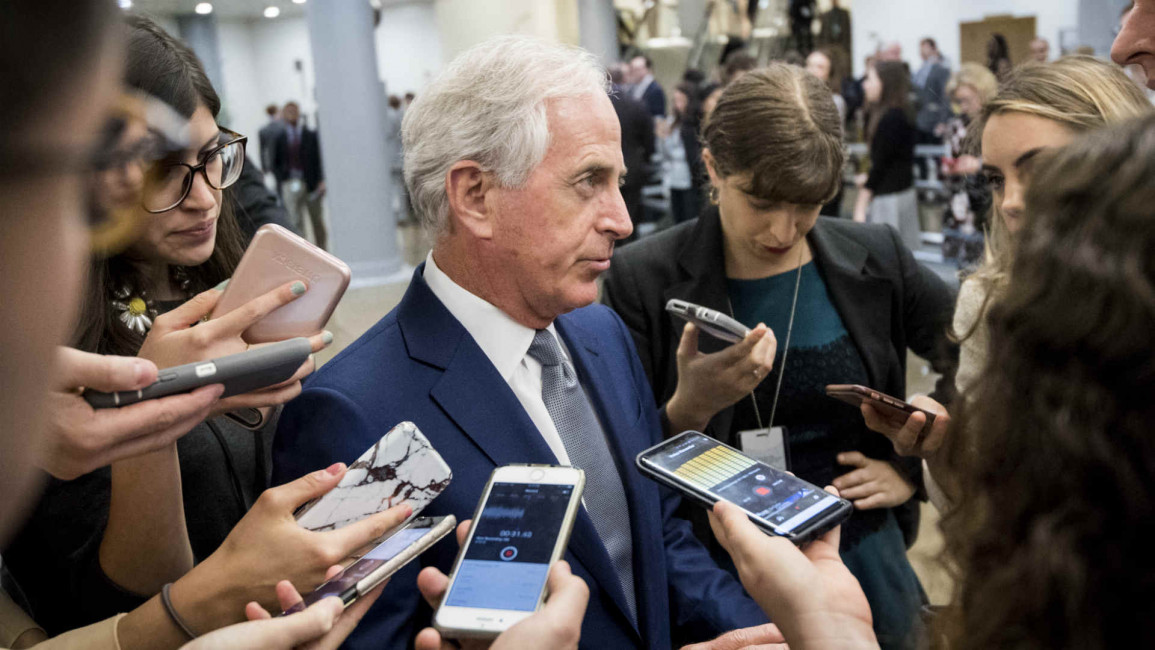US lawmakers introduce open-ended war on terror authorisation
Although the bill is a long-awaited stab at making Congress do its job and authorise wars, it provides cover for campaigns anywhere in the world against terror groups the US is currently fighting, according to Defense News.
Republican Senator Bob Corker, chairman of the Foreign Relations Committee, and Tim Kaine, a committee Democrat and former running mate to Hillary Clinton's 2016 presidential run, unveiled the Authorization for the Use of Military Force (AUMF) against the Islamic State, Taliban and other associated forces.
The bill does not cover military action against any nation state, despite coming days after US President Donald Trump ordered missile strikes at three suspected chemical weapons facilities in Syria used by President Bashar al-Assad.
Democratic and Republican lawmakers have long said they ceded too much military authority to US presidents after the September 11 attacks. However, the proposed legislation does not set an end date for military action other than Congressional review every four years.
Twitter Post
|
Under US law, only Congress has the right to authorise war. But presidents George W Bush, Barack Obama and Donald Trump have used AUMFs for a broad range of campaigns against terror groups since 2001.
The Foreign Relations Committee is expected to debate and possibly vote on the new bill next week. To become law, the bill would also have to pass through the House of Representatives and be signed into law by President Trump.Trump aides have pushed back against the new AUMF, according to Reuters.
The new legislation would require the president to report to Congress on any new military actions and give lawmakers the power to reject them via voting.
If it becomes law, the new AUMF would repeal earlier 2001 and 2002 ones after being in effect for 120 days.
But Congress has been reluctant to take up authority for controversial wars. President Obama in 2013 asked Congress for action against the Syrian regime for using chemical weapons - but lawmakers did not bring the issue to a vote.
Follow us on Twitter: @The_NewArab


![President Pezeshkian has denounced Israel's attacks on Lebanon [Getty]](/sites/default/files/styles/image_684x385/public/2173482924.jpeg?h=a5f2f23a&itok=q3evVtko)



 Follow the Middle East's top stories in English at The New Arab on Google News
Follow the Middle East's top stories in English at The New Arab on Google News


